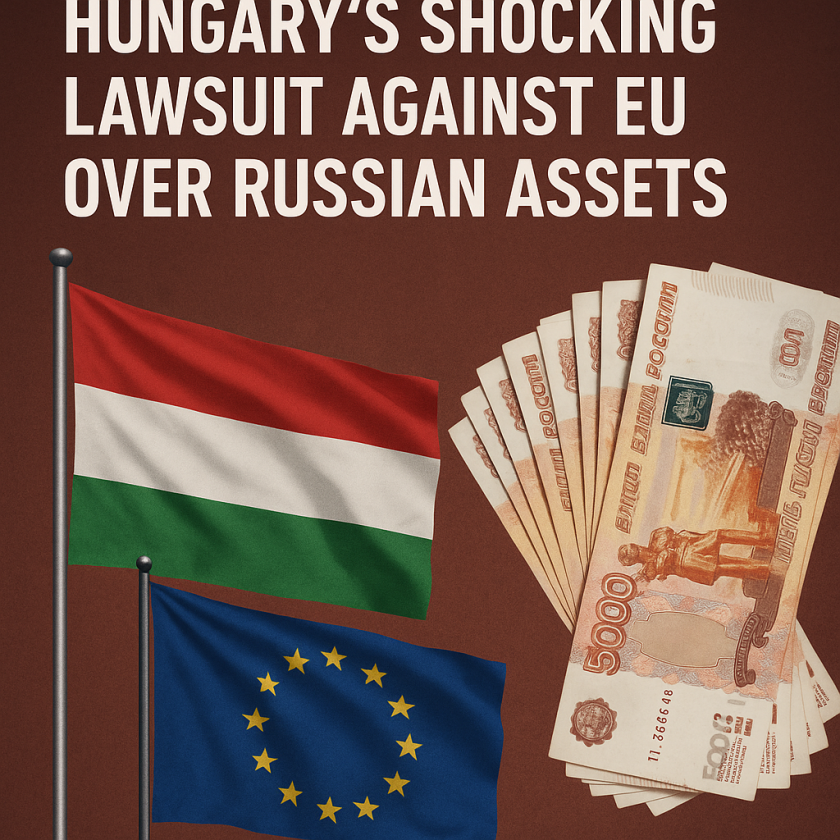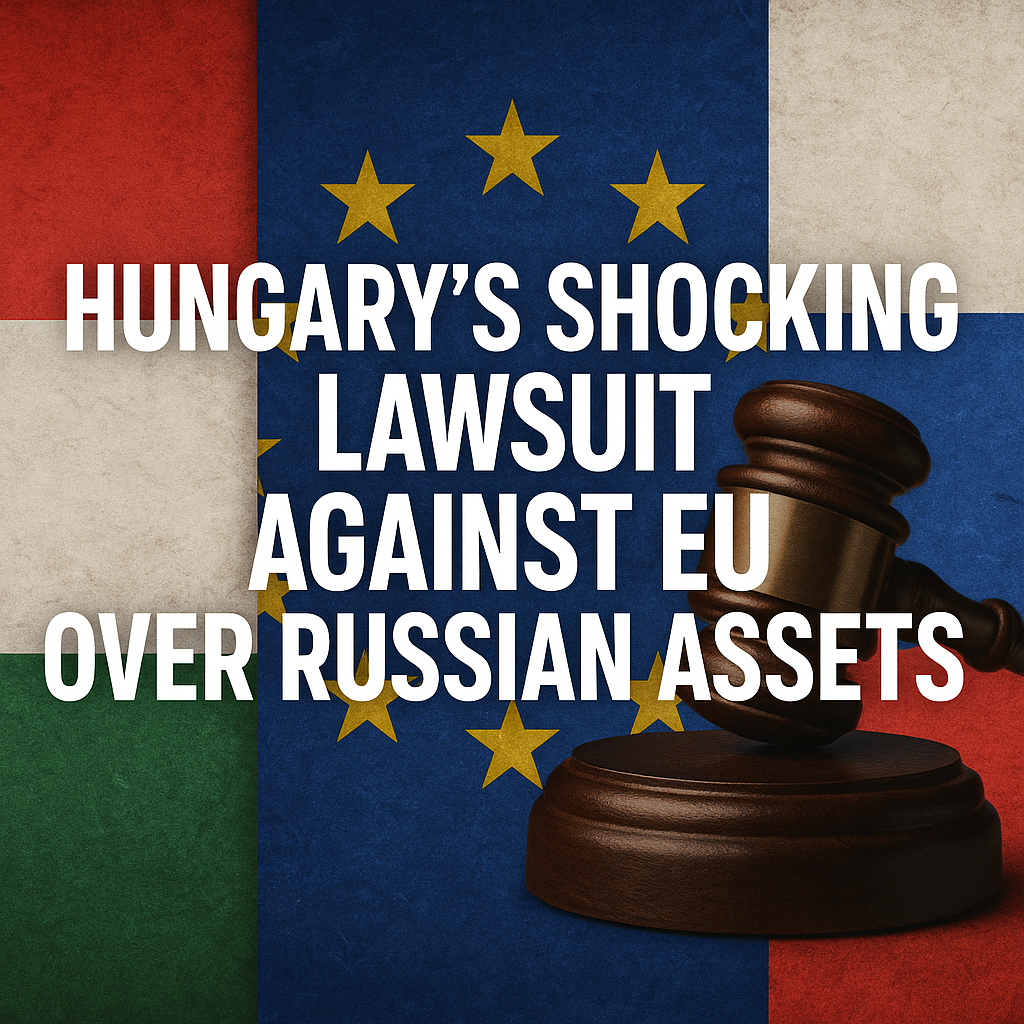Hungary’s Shocking Lawsuit Against EU Over Russian Assets
Hungary’s Shocking Lawsuit Against the EU Over Russian Assets
Hungary’s shocking lawsuit against the European Union regarding frozen Russian assets has sparked intense debate in diplomatic and financial circles. This unprecedented move by Hungary raises pertinent questions about national sovereignty, European unity, and the geopolitical tensions stemming from the ongoing conflict in Ukraine.
Hungary’s Legal Challenge

In a bold step, Hungary announced its legal challenge to the European Union’s decision to freeze Russian assets as part of sanctions linked to the Kremlin’s actions in Ukraine. This lawsuit, filed with the European Court of Justice, positions Hungary against what it perceives as unfair and broad measures that could negatively impact its economy and sovereignty.
The Basis of Hungary’s Complaint
Hungary argues that the sweeping sanctions imposed by the EU compromise its economic interests. The Hungarian government claims that the assets frozen in Brussels, estimated to be worth billions of euros, should be unconditionally returned to their rightful owners. Prime Minister Viktor Orbán pointed out that the sanctions disproportionately affect smaller nations like Hungary, which rely significantly on energy imports from Russia.
From a broader perspective, analysts are divided on the legal grounds of Hungary’s lawsuit. Some legal experts support Hungary’s position, suggesting that there may be a valid argument regarding property rights and economic sovereignty. However, others argue that the EU has the authority to impose these sanctions as a collective response to Russia’s aggression.
Assessing the EU’s Response
The EU’s reaction to Hungary’s lawsuit has been primarily defensive, reiterating the need for unity in the face of external threats. European Commission President Ursula von der Leyen emphasized that the sanctions serve a crucial purpose in terms of international law and security. In this respect, the EU views its sanctions as integral to maintaining pressure on Russia, thereby promoting broader European stability.
Diverging Perspectives Among Member States
Interestingly, Hungary’s stance has not gone unnoticed among other EU member states, many of which maintain strong support for the sanctions. Countries like Poland and the Baltic states argue that the financial strains imposed by these measures are a necessary evil to ensure long-term stability and deter further Russian expansionism in Europe. This divergence highlights the complexities of the EU’s internal dynamics, where economic interests often clash with collective political ideals.
Some EU officials have expressed concern that Hungary’s legal challenge could set a troubling precedent, potentially inviting other nations to assert similar claims. This scenario raises questions about the integrity of the EU’s unified approach and its capacity to hold a firm stance against external aggression.
The Bigger Picture: National Sovereignty vs. Collective Action
The lawsuit brings forth a deeper discourse on national sovereignty versus collective European action. Hungary’s position can be seen as a search for autonomy, signaling a rift within the EU that challenges the organization’s cohesion.
Proponents of national sovereignty argue that individual nations should have the right to decide their economic relationships, especially when it comes to essential resources like energy. Critics, however, assert that an isolated approach undermines the EU’s collective strength in addressing shared threats.
Economic Implications for Hungary
The economic implications of Hungary’s lawsuit may be significant. By asserting its stance against the EU’s sanctions, Hungary could risk alienating itself from other EU countries, potentially leading to financial ramifications not only for state mechanisms but also for businesses that depend on EU trade.
Conversely, if Hungary’s case succeeds, it may embolden other EU nations to challenge collective policies, further complicating the EU’s approach to addressing aggression from Russia while balancing member states’ interests.
Conclusion: An Uncertain Path Forward
In conclusion, Hungary’s lawsuit against the EU regarding frozen Russian assets stands as a dramatic illustration of the tensions between national interests and collective action. This lawsuit not only exposes the fissures within the EU but may also have long-term implications for how the bloc navigates future geopolitical challenges.
While Hungary seeks to assert its sovereignty through legal means, the broader question remains: How will the EU reconcile these individual interests with its commitment to unity and resilience in the face of external threats? The answers are likely to unfold in the coming months as legal proceedings progress and member states continue to grapple with the shared complexities of their diplomatic relationships.




































